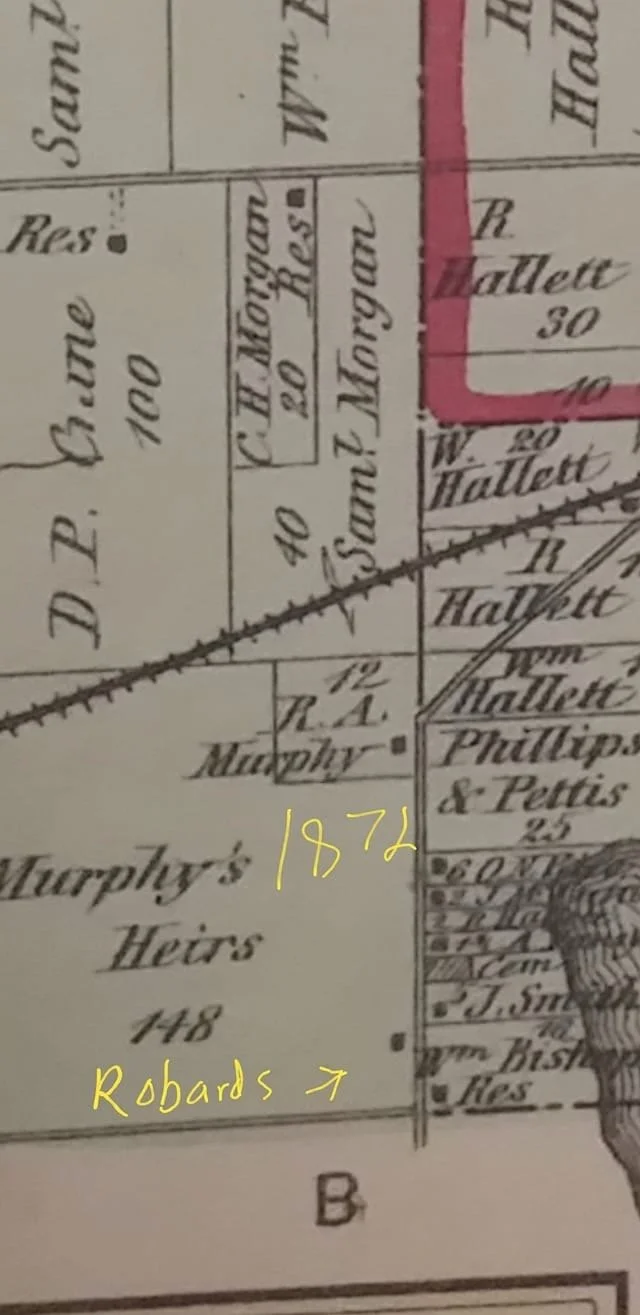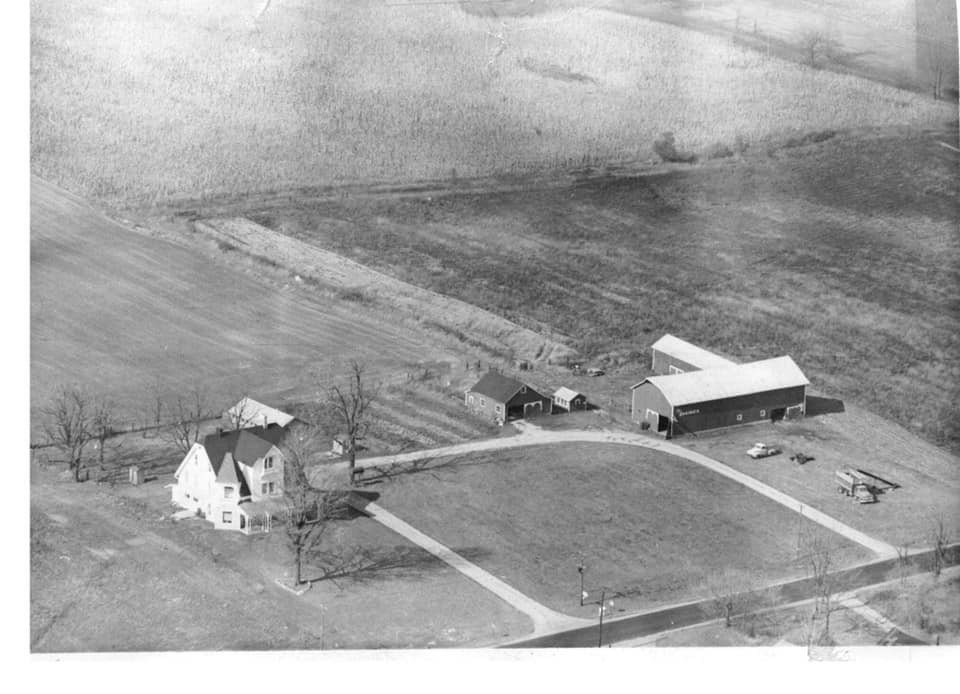The Robards Family
Much has been written both fact and fiction—about the Robards family of Hillsdale. According to an 1890 Saginaw News article, Frank P. Robards was leaving there and moving to Hillsdale to set up a horse-breeding operation. The farm purchased at the Bankers/Cambria Road curve, was adjacent to his father and stepmother's farm on Bankers Road. Their house became a landmark, during the time the Robards lived there and afterward, when its degeneration motivated mischievous citizens to vandalize it.
The elder Robards, James and Mary Terwilliger Robards, owned the eastern part of what had been the farm of Mary's parents, Tunis and Harriet Lincoln Terwilliger. James Robards won $1,250 in an 1888 Louisiana State Lottery. According to the Times-Picayne in New Orleans, "The Louisiana state lottery was a controversial private venture [that] helped develop the state's enduring reputation for corruption."
Frank and his wife, Elizabeth, moved to Hillsdale, where he became a post office inspector and was said to have set up rural free delivery mail service in and outside Hillsdale County. He was also chosen as the chairman of the Hillsdale County Republican Committee in 1898 ... and by some was called "a Hustler."
When they moved to Hillsdale, all three children were enrolled in the public schools. Daughter Rolla was the oldest of the three children and graduated from Hillsdale High School in 1905.
In January of that year, Frank P. Robards Jr., the older of the two sons of Frank and Elizabeth, died at a Chicago hospital resulting from head injuries received three years before. Frank Jr. was a handsome and popular young man, active in sports and theater at Hillsdale High School
Rolla married William Prideaux, an Englishman, who had emigrated in 1888. At one time, William was the managing director and treasurer of Alamo Manufacturing, then later went into the insurance business. They had one son, Tom, who was educated at Yale and became theatrical editor for Life magazine. He arranged for the 1949 Life magazine spread on Hillsdale High School seniors, which caused quite an uproar locally.
Tom evidently came by his writing skills naturally, as his mother, Rolla, had previously caused a great stir in Hillsdale with her short story, "Johnny Has His Way," featured in a 1923 edition of the Pictorial Review. The story, written "with a caustic pen," was a thinly disguised story of Hillsdale's social life containing its gossip and scandals, particularly those of her relatives. Rolla moved to New York with her son, leaving her husband behind.
The youngest child, Jason (known then as Jay), during his second year in Michigan Agricultural School (today Michigan State University), realized his heart wasn't in farming and began spending more and more weekends in Detroit attending the theater, eventually becoming an actor. A confrontation ensued, with the enraged father disowning his only surviving son. Jay's son, Jason Robards, Jr., became a relatively well-known movie star. Thus, Hollywood came to Hillsdale, albeit in a peripheral way.
In August 1916, a Saginaw News article appeared regarding the Robards, this one reporting the divorce proceedings filed by Elizabeth, charging Frank with cruelty. For a number of years, after Elizabeth moved to Broad Street, Frank Sr. lived at the Smith Hotel in downtown Hillsdale. He eventually moved back to the once-grand house on the curve of Bankers and Cambria roads (even now fondly referred to as the Robards curve), after the buyers defaulted. Robards lived as a shadow of his former self, estranged from family and friends. Although never reconciled, the couple were buried together at Oak Grove Cemetery in Hillsdale.
1857 hillsdale county plat map. The Robards family bought the old Murphy farm west of the cemetery.
Carol A. Lackey, with additional pictures from Tom Marshall







